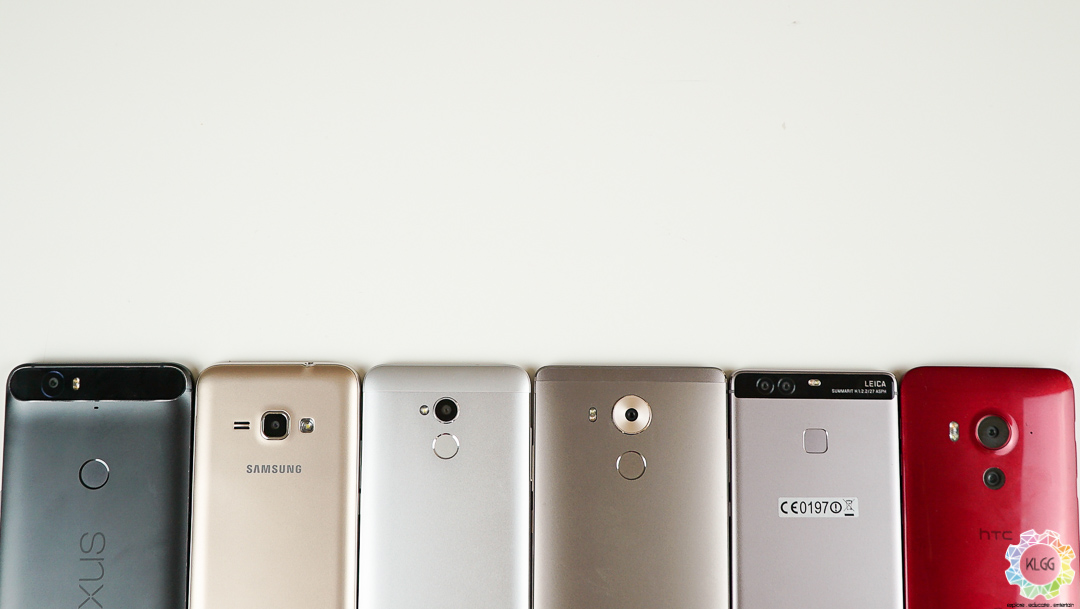In this time and age, technology has changed so fast and with so many options out there, where do we even start? I am not just talking about the number of smartphone models in the market; I am referring to the type of operating system that comes with it, whether it is Google Android, Apple iOS or Windows Mobile. Of course there are die-hard fans of a certain brand of phone or operating system, but if you are wondering what is the difference and which would suit you best, then read on.
Popularity is not a benchmark
Although certain brands of smartphones may be more popular than others with a variety of hardware specs, at the end of the day it is the software that can make or break your experience. So if you’re deciding to maybe “jump ship” to another brand, or maybe looking for a smartphone to buy for someone, try not to let the whole popularity game cloud your judgement.
Now let’s move on to each software and the nitty gritty details.
Apple iOS: The Beautiful Dictator
As much as Apple wants you to believe that their product is the best product for you, it really depends on what your needs are. One good thing about the Apple iOS is the way all its products “communicate” with each other seamlessly in one cohesive ecosystem. For instance, let’s take iMessage as an example. If you are using this messaging system on your smartphone, and you also use it on your Macbook, everything is synced between them without having to literally backup.
Since iOS is a closed ecosystem, its memory management is top notch. Unlike Android, you can open different apps and leave them running in the background without having to worry about your phone slowing down or crashing. You don’t have to clear them on your system tray unless you are like me, who don’t like clutter on desktops.
When it comes to syncing, it is also pretty useful that your Safari browser syncs your tabs in real time. For example, let’s say you are browsing some pages on your mobile, and when you get back to your Mac and open Safari, you have the option to sync your browser to your phone immediately, and you can just continue on a bigger screen from where you left of. Pretty nifty, I must say.
Another good thing about the iOS is for families who want a tighter rein on their kids, which bring us to the parental control integration. With the central Settings app, you can lock out your kids from apps such as App Store, AirDrop, FaceTime, Camera and more. You may choose not to use it but at least with iOS, it can be done easily.
When it comes to purchasing apps in the App Store, it is also more cost effective as Apple offers family sharing, which means you just need to buy an app once, and it can be shared amongst 5 other Apple ID holders registered in your family sharing account. On top of that, it is also easier to control spending, as the payment can be locked to a principle account, and all payments are made using just one credit card.
Speaking of apps, generally the App Store tend to get a lot of new updates first such as popular apps like Instagram, Spotify and Facebook. Some apps also seem to also offer a better user experience on an iOS compared to Android. If you are a fan of Kickstarter projects, a lot of its gadgets tend to support iOS only. Why the bias? Well, I did hear a rumour once that it was a known fact amongst developers that iOS users have a higher tendency to loosen their purse strings to pay for apps compared to users of other mobile operating systems. Not sure if the rumour is true or not, so I’ll just leave it at that. Now, this is not to say that Apple iOS users get all the latest apps. There are also instances where some useful apps are only available on Android.
Since Apple rules with an iron fist (basically, they feel that they know what is best for you in terms of user experience), there are quite a lot of things that may be irritating to most regular users. For one, sharing everyday things – such as files, movies, photos and whatnots, is truly a pain in your rear end whether you are sharing with other iOS users, Android, or Windows users. Sharing files from one iPhone user to another for instance, you would usually use AirDrop, a file sharing system by Apple. You would think that since this is made by the same Cupertino company, it would be much easier. Well, no. It is troublesome and many a time, you can’t even detect the other user’s phone.
If you are into customizing your mobile to have special ring tones, see only the apps you want to see on your home screen, unfortunately you can’t do so. Well, you can however, choose to buy ringtones from iTunes if you really need to be different from other Apple users. However, unfortunately you can’t have an app drawer to make your desktop look neater. You can swipe downwards to search for an app you want, or place all the icons in folders, but that’s all the housekeeping you can do with an iOS.
Google Android: Where Anything Goes
Android is the most used mobile operating system as it is pretty much like an open source software, as device manufacturers are able to place their own user interface on top of the vanilla version. Although the UI may look a little different with a variety of user experience depending on brand, generally all Android OS are similar.
Basically, if Android was a person, everyone is his friend. Android users can share things easily with other mobile users using a variety of third-party apps. For instance, if you saw a photo on Facebook and want to share it with your friend, there is an option to “share external”, which means you can share with someone else whether via Whatsapp, Messenger, WeChat, email, Hangouts, Telegram, Skype and even upload it to Google Drive. The good thing about this is that it is much easier to share interesting photos, recipes and jokes to other people, but on the other hand, what is scary is that, privacy is almost non-existent here. If you sent a photo to another Android user via Whatsapp for instance, there is always a possibility that it will be shared to other people. Some might find this really disturbing, but then if you think about it, you can also send screenshots so having this feature or not doesn’t really keep your privacy, well private for one.
When it comes to customizing your phone, with Android, you can customize almost everything. Don’t like your home screen wallpaper? Change it! You want your lock screen and home screen to have different wallpapers? Sure, why not. Hate all the ringtones that came with the phone? You can use any music as a ringtone, and some manufacturers like Samsung actually offers you a choice for the ringtone to start from the beginning of the song, or from somewhere in the middle where it considers as the highlight of the music.
Remember how iOS places all your apps on your desktop and only allows you to put them in folders and not remove from sight? Well, with Android, it really depends on the device manufacturer’s UI. Some manufacturers design their UI to be just like iOS (which in my opinion defeats the purpose of being on Android, but hey, that’s just me); where you can’t remove the apps from sight, whereas some offer an experience similar to the original Android OS where you can hide whichever apps you want – accessible via the app drawer, and only place apps of your choice on the desktop. This makes the desktop look much neater.
Memory management on Android is a pain though. No matter what brand of phone you use, memory management is pretty unstable. Of course, it also depends on how much bloatware manufacturers stuff into the phone, but generally, the way Android manages its memory is not as efficient as iOS. You have to make sure to clear your system drawer regularly or some memory draining apps might just freeze your phone.
Windows Mobile: The Middle Child
While devices using iOS and Android are always going head-to-head, Windows Mobile is sort of left out in many ways. Despite Microsoft trying hard to promote it with lots of perks to developers in order to get its Store populated with apps, there is still only a small number of apps available for Windows Mobile especially in comparison to Android and iOS. However, ever since Microsoft upgraded to Windows 10 Mobile, there is a glimmer of hope for this unassuming mobile OS.
With Windows 10 Mobile, Microsoft promotes the one platform approach. The Continuum feature allows you to use your mobile as temporary PC in the event you need to do some work on it. You can actually plug in your mobile to an external monitor, plug in a keyboard and mouse and use it like how you would to a PC. Of course this also depends on which device you are using, but in a nutshell, you can only do this with a Windows 10 Mobile device.
Using a Windows Mobile device is easy as long as you have used a Windows PC before. They both work the same way with familiar features and experience. On top of that, apps that you’ve installed on your PC can also be ported easily to Windows 10 Mobile; not all, but quite a good number of them are compatible with Windows 10 Mobile.
Basically, Windows Mobile is all about productivity, which is probably the reason its devices can be used as an ad hoc PC; even using Microsoft Office on a Windows Mobile feels more natural. The incorporation of Cortana into Windows Mobile is also pretty helpful. It works pretty much like how Siri does on an iOS device, so although it isn’t particularly new, it is a good feature. Calling Cortana is also more natural instead of saying “OK, Google”, which I think is still a very weird way of calling up a personal assistant-like function.
Despite how Microsoft has promoted Microsoft Edge, it still isn’t up to par with the popular browsers like Chrome and Safari. Support for this new browser by many websites is still not updated, so as of now, we can’t really make a fair opinion on it yet.
Generally, Windows 10 Mobile is still at its infancy stage. It can’t compare to Android and iOS in terms of app support, and there are not many Windows devices in the market as well. It doesn’t help either that Microsoft has stopped support for all Android apps on its platform. You can almost say that devices with Windows Mobile caters to a very niche market, for now.











